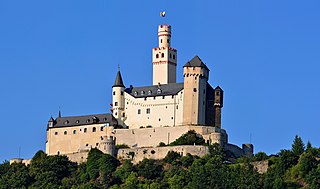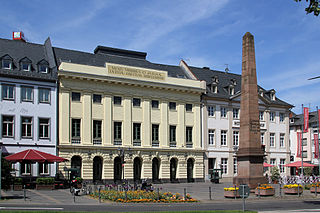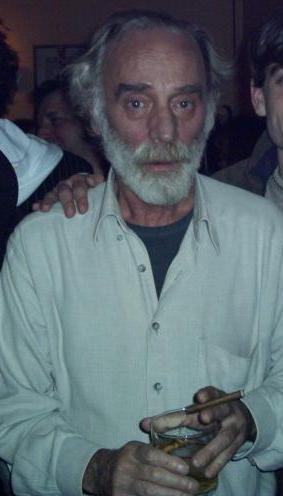Related Research Articles

Venetic is an extinct Indo-European language, usually classified into the Italic subgroup, that was spoken by the Veneti people in ancient times in northeast Italy and part of modern Slovenia, between the Po Delta and the southern fringe of the Alps, associated with the Este culture.

Old European is the term used by Hans Krahe (1964) for the language of the oldest reconstructed stratum of European hydronymy in Central and Western Europe.

A wicket gate, or simply a wicket, is a pedestrian door or gate, particularly one built into a larger door or into a wall or fence.

Hans Krahe was a German philologist and linguist, specializing over many decades in the Illyrian languages. He was born in Gelsenkirchen.
Frederick Claude Krahe was an Australian New South Wales police officer and detective.
Andinus is an Illyrian god worshipped among the Dardanians in Moesia Superior. The only trace left is a name carved on an altar dedicated by a beneficiarus. Variants of the name such as Andia or Andio were common among the Dardanians. As the region of Kosovo was located on the road that went from the Adriatic Sea to Dacia, personal names like Ulpius Andinus or Ulpia Andia appeared among new citizens in the area during the reign of Trajan.

The Illyrian language was an Indo-European language or group of languages spoken by the Illyrians in Southeast Europe during antiquity. The language is unattested with the exception of personal names and placenames. Just enough information can be drawn from these to allow the conclusion that it belonged to the Indo-European language family.
Krahës is a village in Gjirokastër County, southern Albania. It formerly functioned as a municipality, but at the 2015 local government reform, it became a subdivision of the municipality Memaliaj.

Kiltsi is a small borough in Väike-Maarja Parish, Lääne-Viru County, in northeastern Estonia.

Angerja is a village in Kohila Parish, Rapla County in northwestern Estonia. It has a population of 65 and an area of 12.59 km2.

A hill castle or mountain castle is a castle built on a natural feature that stands above the surrounding terrain. It is a term derived from the German Höhenburg used in categorising castle sites by their topographical location. Hill castles are thus distinguished from lowland castles (Niederungsburgen).
Pan-Illyrian theories were proposed in the first half the twentieth century by philologists who thought that traces of Illyrian languages could be found in several parts of Europe, outside the Balkan area.
Krahe is a surname. Notable people with the surname include:

The Raab Krähe is a West German high-wing, single-seat, pusher configuration motor glider that was designed by Fritz Raab for amateur construction around 1958.

The term lowland castle or plains castle describes a type of castle that is situated on a lowland, plain or valley floor, as opposed to one built on higher ground such as a hill spur. The classification is extensively used in Germany where about 34 percent of all castles are of the lowland type.

Wilhelm Lambert Krahe was a German history painter and art collector.

Peter Joseph Krahe was a German architect. He was instrumental in converting the old city walls and fortifications of Braunschweig into a series of parks and other public spaces.

Francisco Javier Krahe de Salas was a Spanish singer active from 1980.

A chamber gate is a type of gateway system on medieval town fortifications and castles that comprises at least two successive gateways linked by an easily defended passageway between two walls. Chamber gates can be built in the space between two enceintes or built into an enceinte as an independent gateway. Because relatively few fortifications are surrounded by a complete second defensive wall, chamber gates are frequently found in short Zwinger sections.

Carl Ernst Christoph Hess, or Carl Ernst Heß was a German copper engraver and painter.
References
- ↑ "Maria Krahe". Olympedia. Retrieved 28 June 2020.